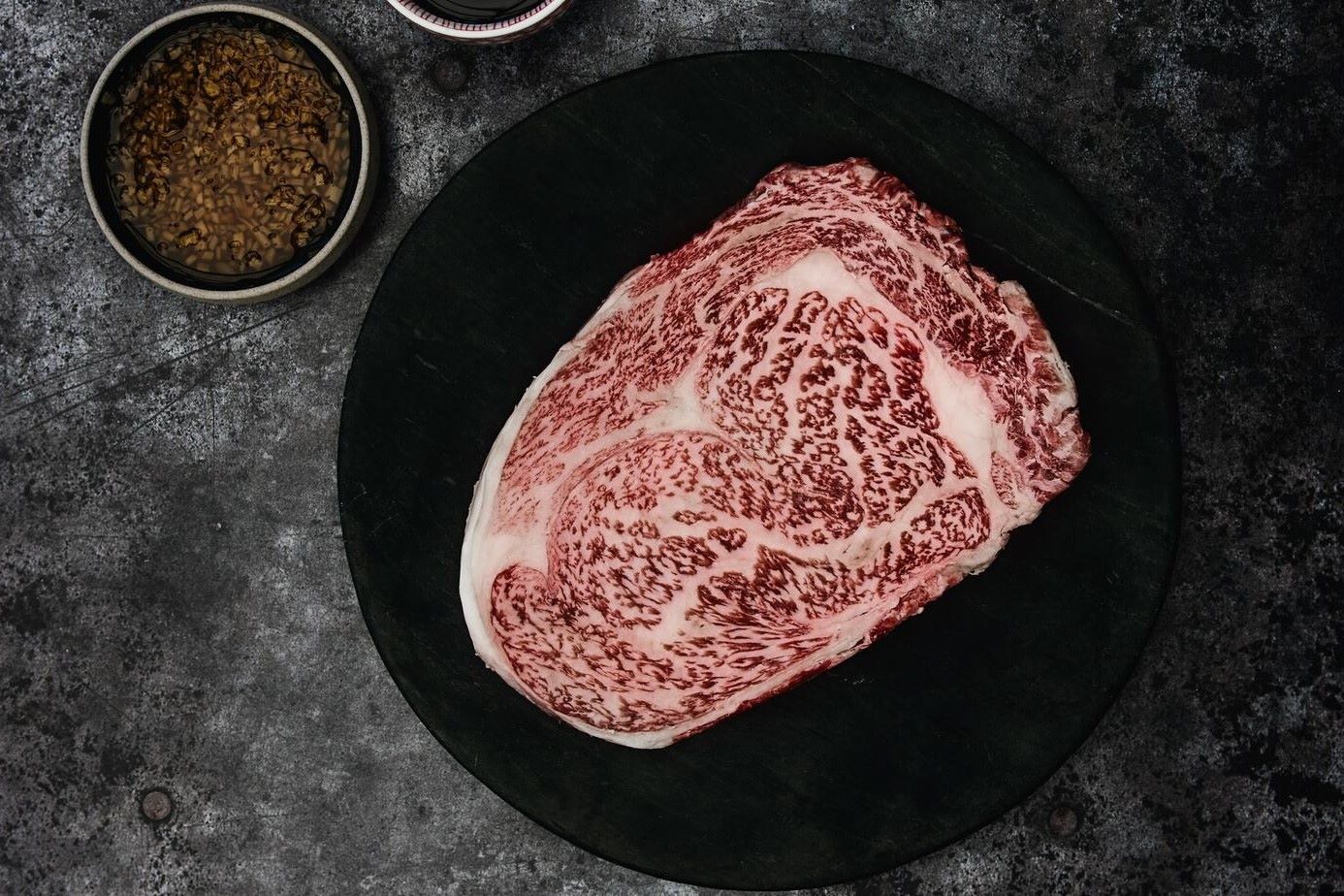
Wagyu beef has gained immense popularity in recent years for its exceptional quality and unique flavor. Originating from Japan, Wagyu beef is known for its marbling, which gives it a rich and tender texture unlike any other type of beef. Beyond its delicious taste, Wagyu beef also offers a range of nutrition benefits that make it a standout choice for meat lovers and health-conscious individuals alike. In this article, we will explore 20 fascinating nutrition facts about Wagyu beef, shedding light on its nutrient profile, health benefits, and how it compares to other types of beef. So, whether you are curious about the nutritional value of Wagyu beef or you simply can’t resist its melt-in-your-mouth goodness, keep reading to discover what makes this delicacy a truly exceptional choice.
Key Takeaways:
- Wagyu beef is a protein-packed powerhouse, rich in essential vitamins, minerals, and healthy fats. It’s a delicious way to support muscle growth and overall health.
- With Wagyu beef, you’re not just indulging in a tasty meal – you’re fueling your body with nutrients like omega-3 fatty acids, CLA, and vitamin B12 for brain and heart health.
Rich in Protein
Wagyu beef provides a high protein content, with approximately 26 grams per 100 grams serving. Protein is essential for muscle development, repair, and overall growth.
Significant Source of Vitamins
Wagyu beef contains essential vitamins such as vitamin B12, which is crucial for red blood cell production and neurological function.
High in Minerals
This beef is packed with essential minerals like zinc, iron, and selenium. Zinc supports a healthy immune system, while iron aids in oxygen transport and energy production.
Contains Healthy Fats
Wagyu beef is unique due to its high content of monounsaturated fats, particularly oleic acid. These fats have been associated with numerous health benefits, including improved heart health.
Lower in Saturated Fat
Contrary to popular belief, Wagyu beef is lower in saturated fat compared to other beef varieties. This makes it a healthier choice for individuals concerned about their saturated fat intake.
Omega-3 Fatty Acids
Wagyu beef contains omega-3 fatty acids, which are essential for brain health, reducing inflammation, and maintaining a healthy heart.
Conjugated Linoleic Acid (CLA)
Studies have shown that Wagyu beef contains higher levels of CLA, a type of fatty acid that may have potential health benefits, including supporting weight management and reducing the risk of certain diseases.
Excellent Source of Leucine
Leucine is an essential amino acid known for its role in stimulating muscle protein synthesis. Wagyu beef is a rich source of leucine, making it an excellent choice for muscle recovery and growth.
Low in Carbohydrates
For those following a low-carb diet, Wagyu beef is a great option as it contains negligible amounts of carbohydrates.
Gluten-Free
Wagyu beef is naturally gluten-free, making it suitable for individuals with gluten allergies or sensitivities.
Nutrient-Dense
With its impressive nutrient profile, including vitamins, minerals, proteins, and healthy fats, Wagyu beef can be considered a highly nutrient-dense food choice.
Source of Essential Amino Acids
Wagyu beef contains all essential amino acids that our bodies cannot produce on their own. These amino acids play essential roles in various bodily functions.
High in Iron
Iron is crucial for red blood cell production and oxygen transport. Wagyu beef provides a significant amount of iron per serving.
Contains Conjugated Linolenic Acid (CLnA)
Research suggests that CLnA, found in Wagyu beef, may have potential anti-inflammatory and anti-cancer properties.
Low Sodium Content
Compared to other beef varieties, Wagyu beef has a relatively low sodium content, which is beneficial for individuals watching their sodium intake.
High in Vitamin B6
Vitamin B6 is important for brain development, hormone regulation, and immune function. Wagyu beef provides a significant amount of this essential vitamin.
Natural Source of Creatine
Wagyu beef naturally contains creatine, an amino acid derivative that aids in energy production, muscle strength, and endurance.
Antioxidant Capacity
Wagyu beef contains antioxidants such as vitamin E, which may help protect the body against oxidative stress and cellular damage.
Supports Bone Health
Wagyu beef is an excellent source of phosphorus and zinc, two minerals important for healthy bone structure and strength.
High-Quality Protein for Muscle Repair
The unique composition of Wagyu beef makes it an ideal protein source for muscle repair and recovery, helping to maintain and build lean muscle mass.
With these 20 nutrition facts, it’s clear that Wagyu beef offers more than just its mouthwatering taste. Incorporating this premium beef into your diet can provide you with a range of essential nutrients that support your overall health and well-being. The next time you savor a juicy Wagyu steak, remember that you’re also nourishing your body with its valuable nutritional benefits.
Conclusion
In conclusion, Wagyu beef is not only incredibly flavorful and tender, but it also offers numerous health benefits. With lower levels of saturated fats and higher concentrations of heart-healthy omega-3 fatty acids compared to conventional beef, Wagyu beef can be a nutritious choice for meat lovers. It is also packed with essential vitamins and minerals, including iron, zinc, and B vitamins, which contribute to overall health and wellbeing.However, it is important to keep in mind that moderation is key, as Wagyu beef is still high in calories and should be consumed as part of a balanced diet. Additionally, it is recommended to choose grass-fed Wagyu beef whenever possible, as it contains even higher levels of beneficial nutrients. So, go ahead and indulge in the deliciousness of Wagyu beef, knowing that you are treating yourself to a nutritious and mouthwatering experience.
FAQs
1. Is Wagyu beef healthier than regular beef?
Yes, Wagyu beef tends to be healthier than regular beef. It has a higher concentration of heart-healthy omega-3 fatty acids and lower levels of saturated fats.
2. How does Wagyu beef get its tenderness?
Wagyu beef gets its tenderness from the higher amount of intramuscular marbling, which is the fine flecks of fat dispersed throughout the meat. This marbling adds flavor and makes the meat incredibly tender.
3. What are the nutritional benefits of Wagyu beef?
Wagyu beef is packed with essential vitamins and minerals such as iron, zinc, and B vitamins. It also contains conjugated linoleic acid (CLA), which has been linked to various health benefits.
4. How should I cook Wagyu beef?
Wagyu beef is best cooked on low to medium heat to ensure the marbling melts slowly and evenly, resulting in a melt-in-your-mouth texture. It is recommended to avoid overcooking Wagyu beef to preserve its tenderness.
5. Can I include Wagyu beef in a healthy diet?
Absolutely! While Wagyu beef is high in calories, it can still be included in a healthy diet when consumed in moderation. Pair it with nutrient-rich vegetables and opt for cooking methods that require less added fats.
Was this page helpful?
Our commitment to delivering trustworthy and engaging content is at the heart of what we do. Each fact on our site is contributed by real users like you, bringing a wealth of diverse insights and information. To ensure the highest standards of accuracy and reliability, our dedicated editors meticulously review each submission. This process guarantees that the facts we share are not only fascinating but also credible. Trust in our commitment to quality and authenticity as you explore and learn with us.


